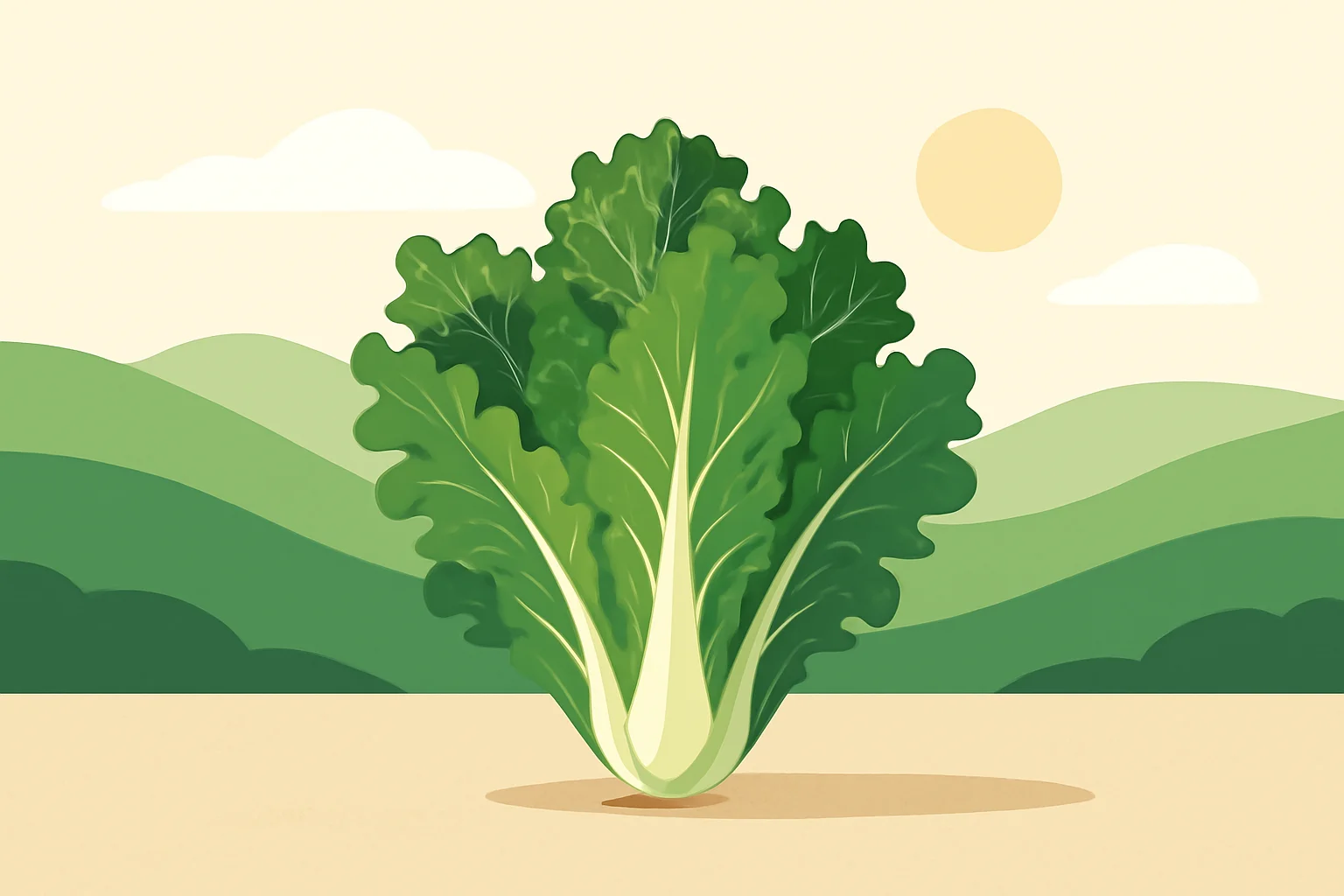
The Beneficial Effects of Broadleaf Endive on Health
The broad-leaved endive, also known as chicory, is a unique vegetable that is not only popular in gastronomy but also has numerous health benefits. Endive originates from the Mediterranean region and is a favored ingredient in salads. Its taste is slightly bitter, which complements various dishes and makes it a perfect choice for vegan and health-conscious diets.
Endive is a nutrient-rich vegetable that contains vitamins, minerals, and fiber, among other nutrients. These nutrients not only support everyday health but also contribute to the prevention of various diseases. Consuming endive can help regulate blood sugar levels, reduce inflammation, and minimize the risk of cardiovascular problems. Additionally, endive is an excellent choice for dieters, as it is low in calories while providing a feeling of fullness.
Thus, broad-leaved endive is not just a delicious vegetable but also a food that, with its rich nutrient content, can support a healthy lifestyle. It is worth getting to know its beneficial effects and incorporating it into our diet to take advantage of all that this unique plant has to offer.
Nutritional Content of Endive
The nutritional content of broad-leaved endive is exceptionally rich, which contributes to its popularity among those following a healthy diet. Endive is low in calories, containing only a few calories per 100 grams. In contrast, it offers a wealth of beneficial nutrients that help the body function properly.
Endive is rich in vitamins, particularly vitamins A, C, and K. Vitamin A plays an important role in vision and skin health, while vitamin C has antioxidant properties, helping to neutralize free radicals and support the immune system. Vitamin K is essential for the blood clotting process and contributes to bone health as well.
Endive is also abundant in minerals, such as calcium, magnesium, and potassium. Calcium is important for the health of bones and teeth, while magnesium participates in numerous biochemical processes in the body, including energy production and proper muscle function. Potassium helps regulate blood pressure and contributes to cardiovascular health.
The fiber content in endive is also outstanding. Fiber is important for digestion as it aids in bowel movements, reduces the risk of constipation, and contributes to gut health. Additionally, fiber can help stabilize blood sugar levels and enhance the feeling of fullness, which can be beneficial for weight loss.
Overall, broad-leaved endive is an extremely nutritious vegetable, and regular consumption can contribute to a healthy lifestyle and balanced nutrition.
Benefits of Endive for Cardiovascular Health
Regular consumption of broad-leaved endive has numerous beneficial effects on cardiovascular health. Due to its low calorie and high fiber content, endive can be particularly favorable for a heart-healthy diet. The fiber helps reduce cholesterol levels, which plays a key role in the prevention of heart diseases.
The potassium found in endive contributes to maintaining normal blood pressure levels. Adequate potassium intake helps balance the effects of sodium, thereby reducing the risk of developing high blood pressure. Potassium also aids in regulating heart rhythm, which is essential for maintaining heart health.
Endive contains antioxidant compounds that help reduce inflammation. Chronic inflammation can contribute to the development of cardiovascular diseases, so consuming endive can help mitigate this risk. Antioxidants also play a role in neutralizing free radicals, which can have harmful effects on cells and heart health.
Thus, regular consumption of broad-leaved endive can contribute to the prevention of cardiovascular problems and help maintain heart health. It is worth incorporating it into our diet to enjoy its beneficial effects.
Endive and Digestion: Supporting Gut Flora
One of the most important beneficial effects of broad-leaved endive is its positive impact on digestion. The high fiber content in endive helps regulate bowel movements and contributes to gut health. Fiber plays a crucial role in maintaining proper digestion, as it aids in nutrient absorption and the elimination of waste.
The prebiotic inulin found in endive has particularly beneficial effects on gut flora. Inulin nourishes the beneficial bacteria in the gut, such as bifidobacteria and lactobacilli. These bacteria aid in digestion, reduce the risk of inflammation, and contribute to strengthening the immune system.
Maintaining gut health is key to good digestion and overall health. Regular consumption of endive can help reduce bloating, constipation, and other digestive issues. Proper functioning of the digestive system is essential for nutrient absorption, which contributes to maintaining the overall health of the body.
Additionally, broad-leaved endive is low in calories, making it an ideal choice for dieters. The fiber helps enhance the feeling of fullness, which can help avoid overeating. As part of a balanced diet, endive can also contribute to weight control.
Thus, broad-leaved endive is not only a delicious and nutritious vegetable but also plays an important role in maintaining digestion and gut health.
How to Use Endive in the Kitchen?
Thanks to its versatility, broad-leaved endive can be used in numerous ways in the kitchen. The taste and texture of endive pair well with salads, main dishes, and side dishes alike. Furthermore, broad-leaved endive is excellent for various diets, as its low calorie content can help with weight control.
The most common way to use endive is in salads. Its fresh, crispy leaves can serve as excellent ingredients for various green salads. It can be particularly delicious when combined with other vegetables, such as tomatoes, cucumbers, or avocados. Salads can be flavored with olive oil, lemon juice, or balsamic vinegar to enhance the dish’s taste.
Endive also complements cooked dishes well. It can be steamed or roasted, creating a tasty side dish for meat dishes. Roasting endive makes its flavor even sweeter, which pairs particularly well with garlicky or spicy foods. It can also be excellently combined with chicken, fish, or tofu.
Broad-leaved endive is delicious both fresh and in roasted or steamed form. It can also appear in soups, such as cream soups or vegetable soups. The flavor of endive complements creamy soups beautifully and provides a special culinary experience.
Overall, broad-leaved endive is a versatile and delicious vegetable that can be used in many ways in the kitchen. It is worth experimenting with it to discover the possibilities it offers and to enjoy its beneficial effects.
Note: This article does not replace medical advice. Always consult your doctor for health issues.

